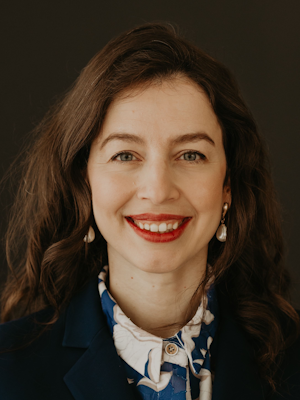Foundations of Trauma-Informed Therapy
Enroll in the Online Self-Study and complete the training on your own schedule.
4 CE hours available for behavioral health clinicians
When a client dissociates mid-session, shuts down in silence, or overreacts to a minor frustration, what’s really happening in their nervous system—and how should you respond? Clinicians often feel helpless or confused in the face of trauma’s invisible imprint. This course offers the clarity, confidence, and clinical grounding you’ve been searching for.
Whether you're working with children, adults, or families, trauma shows up in ways that are often misdiagnosed, misunderstood, or mishandled. Foundations of Trauma-Informed Therapy helps you decode those moments and equips you with the knowledge to intervene skillfully, safely, and ethically.
Register for the 4 CE Online Self-Study for
$150
Respond to misdiagnosed trauma with clarity and confidence
Payment Options are listed at checkout
Earn the Trauma-Informed Therapy Certificate for $259 (Save $41)
Earn 8 CEs and access the two training modules
Payment Options are listed at checkout
"Foundations of Trauma-informed Therapy" is one of two courses that compromise the Trauma-Informed Therapy Certificate (TITC) Training Program. Enroll in the discounted full program and earn 8 total CEs and the TITC.
Dr. Sofia Georgiadou and Dr. Sarah Stewart-Spencer are not just educators—they are nationally respected experts who have trained thousands of clinicians to better support trauma-exposed individuals. Dr. Georgiadou brings rich insight into culturally responsive care and supervision, while Dr. Stewart-Spencer’s clinical and academic leadership spans first responder populations, higher education, and trauma program development. Together, they offer a rare blend of neurobiological expertise, therapeutic precision, and deep compassion.
In this on-demand, self-paced course, the instructors break down complex neuroscience, attachment theory, and diagnostic frameworks into practical, clinician-friendly language. You’ll learn to move beyond generic trauma talk and into grounded, evidence-based approaches that honor your client’s unique lived experience.
You’ll explore the neurobiology of trauma—including the roles of the amygdala, prefrontal cortex, and vagus nerve—plus how trauma shapes behavior, memory, and diagnosis. The course dives into the effects of early neglect, historical and intergenerational trauma, the DSM-5-TR framework for PTSD, and how to implement culturally sensitive assessment tools and trauma-informed principles into your work.

Instructor
Dr. Sofia Georgiadou is an Assistant Professor and Internship Coordinator at the University of Houston at Clear Lake’s MA in Family Therapy Program. Additionally, she teaches as an Adjunct for the Family Institute at Northwestern University and Capella University's fully online Master's in Family Therapy program. She is also the administrator of COAST’s Educators Division, the Society for the Teaching of Marriage and Family Therapy (www.stmft.coastmft.org).
Originally from Greece, Sofia develops culturally responsive MFT and Counseling courses, using an intersectional approach in her teaching and supervision. Her research experience centers on qualitative/mixed methods and survey design. Sofia seeks to understand the lived experiences of diverse groups to better support international students, immigrants, and individuals from equity-deserving communities.

Instructor
Dr. Sarah Stewart-Spencer is a clinical provider specializing in trauma and an accomplished leader in higher education and counseling. Dr. Stewart-Spencer is a Licensed Professional Counselor in Virginia, a Licensed Mental Health Counselor in Florida, and Nationally Certified Counselor. She is also certified as a First Responder Provider, Hypnotherapist and a Clinical Trauma Professional.
Dr. Stewart-Spencer is the owner of the Integrated Wellness Institute and Stewart-Spencer Consulting. She is currently an Associate Professor (adjunct faculty) at The Chicago School for Professional Psychology. She is a course developer and trainer at the International Trauma Training Institute, as well as maintains a private practice for high-risk trauma exposed populations, such as law enforcement. She is the former Dean of Behavioural Sciences at Yorkville University, Canada’s largest and leading online counselor education graduate program. Programs there include the Master of Arts in Counselling Psychology and Doctorate in Counselling and Psychotherapy.
Key Takeaways:
- Understand trauma’s clinical complexity: Gain a working understanding of how trauma reshapes the brain and body—and what that means in the therapy room.
- Work with trauma, not around it: Learn to recognize trauma responses and avoid common missteps that can derail progress or cause harm.
- Implement practical strategies: Apply trauma-informed frameworks and culturally attuned assessments with greater skill and purpose.
Why this course?
- Go deeper than surface-level training: Most CE courses teach what trauma is—this one shows you how to work with it, from a foundation of neurobiological truth and cultural humility.
- Learn from master-level instructors: Drs. Georgiadou and Stewart-Spencer are widely respected educators and clinicians who know how to teach trauma in a way that sticks and transforms.
- Built for real-world practice: Created by the Telehealth Certification Institute, this course honors the complexity of your work and gives you tools that can be used immediately—even in high-pressure clinical settings.
Learning Objectives:
- Define trauma and describe its prevalence and impact on individuals and communities.
- Explain the neurobiological effects of trauma on brain development and functioning.
- Explain the role of disrupted attachment on relational trauma.
- Evaluate and select culturally appropriate trauma-informed assessment tools, competencies, and models.
This is more than a CE course—it’s a shift in how you see your clients, your role, and the healing process itself. Add it to your toolkit today and join a growing community of clinicians committed to showing up for their clients with knowledge, empathy, and integrity.
Add this to your course library to get started instantly.
This is a non-interactive, self-study program and consists of over 4 hours of video instruction and post-tests.
Select each tab for course details
Availability: From the time of registration, you have six months to access the coursework.
Who Should Attend: This course is intended for clinicians who provide behavioral health services.
Teaching Methods: This is a non-interactive, self-study course. Teaching methods for this course include recorded lectures, videos, a post-test, and a course evaluation.
How to Attend: Instructions for attending and completing a course can be found here.
This program was recorded April 11, 2025.
Testimonials
Bridgette Nalumu
Public health consultant, Green and Purple Consultancy Network
Lora Verley
Clinical Therapist, Bayless Integrated Healthcare
Jackie Tanna
Therapist, Region One Mental Health
Jackie Bell-Russell
Therapeutic Behavioral Strategist, Rialto Unified School District